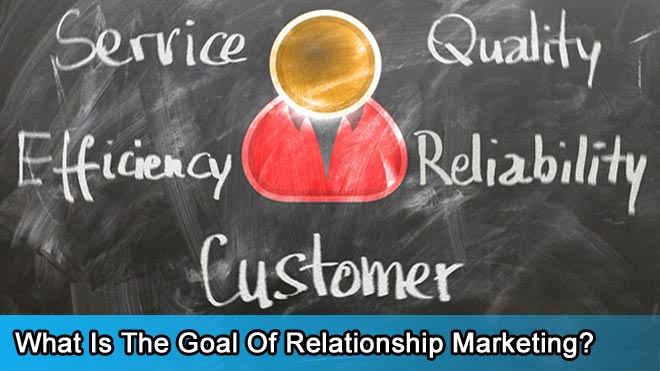
Marketing is the cornerstone of every business, whether big or small and whatever the nature of operations.
In the current 2021 pandemic scenario, several important trends have emerged.
Globally, brands are facing increasing economic pressure to deliver real-time results. They are not in a position to shell out funds on resources that don’t promise an equal return on investment.
This means that marketers and marketing departments have to tighten their belts and allocate available resources in smarter and more efficient ways so that they yield maximum results.
Relationship marketing is a modern approach to issues that marketers have faced for the longest time.
Important Trends in Marketing
Industry gurus predict that as a result of the medical crisis and worldwide panic, there could be a higher need for customers for positive experiences. They may also seek non-purchase engagement with brands that they have been loyal to. These would include loyalty points, redemptions, virtual UX, and more digital interaction with the brand.
There could also be a ramping up of integration of loyalty programs into the social media component. Today, customers value brands that take their health and safety seriously. Contactless transactions, emphasis on wellness, social and community consciousness, supporting innovation and adaptation, being resilient, and maintaining the brand’s presence are some of how some brands have stayed alive while others have fallen by the wayside.
The “callout culture” in social media has ensured that brands that fail to adapt are held accountable in public for decisions that are contrary to social values.
Another big trend is the fact that global brands have begun to think locally in the communities in which they operate.
Keeping these aspects in mind, it’s important to analyze the role of relationship marketing, its goals, and the benefits it offers.
Read Also:
- How to Have an Incredible Marketing Success
- Ways to Grow Your Local Business with Digital Marketing
- Boost your startup with Local SEO
What Is Relationship Marketing?
Consumers have never had it so good! With millions of products, services, and brands to choose from, and all of them vying for attention and patronage, buyers are spoiled for choice.
Up until the 1990s, marketing efforts tended to focus on sales, revenues, and product/service-centric messaging.
All that changed with the changing economic landscape, dramatic advances in technology, and the dynamic nature of consumer behavior.
Organizations and business owners began to realize that new customer acquisition is not just a lot of hard work, it’s also expensive. While earlier marketing efforts were focused on current and future transactions, improving revenues and sales, businesses soon understood that customer satisfaction, loyalty, and the staying power of the brand were being given short shrift.
Read Also: Grow Your Local Business with Hyperlocal EDDM Marketing
Relationship marketing on the other hand prioritizes the customer and directs its efforts towards establishing, maintaining, and nurturing good quality exchanges between the transacting parties.
Essentially, there must be a relationship (read emotional connect) for customers to remain loyal to a brand. This is a strategy for the long haul. It is designed to keep lasting relationships in mind and not just brief transactions.
Studies show that 80% of a business’s revenues come from 20% of current customers.
Just increasing customer retention by 5% can boost profitability by 75% because the cost of renewing a customer is just 11% of what it costs to acquire a new one.
This is why relationship marketing strategy focuses on building, developing, nurturing, and sustaining connections. This builds endurance and loyalty that yield better results in the long term.
Read Also: Mastering the Marketing Mix Strategies for Success With 4Ps
Benefits of Relationship Marketing
When businesses focus more on the relationship rather than the transaction that connects people, it offers significantly higher benefits. These include:
- A better understanding of customer needs, preferences, and behavior
- Remaining in constant touch with customers to understand their changing needs
- Fulfilling expectations to tweak products/services in tandem
- Higher social media presence and visibility
- Boosts revenues
- Creates enduring and sturdy brand loyalty
- Incorporates lateral relationships with all stakeholders
- Helps to analyze competitors
Goals and Objectives of Relationship Marketing
Building strong relationships is the ultimate goal of all related marketing strategies.
To this end, it aims to:
Demonstrate your care and concern for customers: With each interaction with customers, vendors, shareholders, suppliers, and your employees, relationship marketing strategies aim to show them that you care for their welfare. This is achieved by taking an emotional, empathetic approach to the relationship rather than a transactional/sales approach.
Responding appropriately: Relationship marketing prioritizes customer interactions. That is why active listening is a cornerstone of this strategy. You can use social media tools and data available via your website to facilitate this. As a result, you are better able to respond more appropriately and promptly to your customer.
Add value: One of the important aspects of a relationship is that it adds value to all the parties involved. As a business owner, you can offer a range of useful information to visitors on your website. This can be in the form of short training modules, educational blogs, industry news, opinion pieces, feedback and reviews by long-term customers, product/service tech information, e-books, whitepapers, etc.
Profitability: Businesses exist to make profits. Relationship marketing strategies ensure that profitability is boosted because:
- customer acquisition costs are lower
- loyal customers are more likely to spend more and more frequently
- long-term clients are more open to new offerings and innovation
- your marketing spend is much lower
- employees and shareholders are more connected to your business emotionally, reducing turnover
Collecting Data: Relationship marketing is one of the smartest ways to collect more in-depth and comprehensive data on your customers. Your website provides you with enormous amounts of information on demographics, behavior, income, buying patterns, frequency, feedback, etc. that you can use to your benefit. Usable data helps you to customize your offerings better and also offers relevant and timely information to your customers.
Personalization: An important goal of relationship marketing is personalization. As a business owner, delivering an appropriate, interesting, and useful message to the customer at the right time and at the right price point has been the Holy Grail of marketing since the dawn of commerce. Knowing your customer, and being able to predict their future actions, needs, wants and behaviors help you to streamline your operations and make better financial projections.
Advocacy: With relationship marketing, your customers become an extension of your marketing department. Loyal customers tend to become marketing evangelists. They make efforts to spread the word to friends and family and involve their social circle of influence in many of their purchasing decisions. When you deliver consistent UX they are better able to showcase your business, products, and services in a better light on social media.







